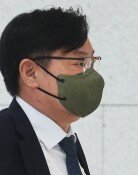Proactive diplomacy can solidify S. Korea-U.S. alliance
Proactive diplomacy can solidify S. Korea-U.S. alliance
Posted November. 15, 2019 07:53,
Updated November. 15, 2019 07:53
U.S. Defense Secretary Mark Esper said Wednesday, “We will adjust our exercise posture, either more or less, depending on what diplomacy may require,” hinting at the possibility of scaling back the joint military drills with South Korea to advance the denuclearization talks with North Korea. The remarks came after North Korea’s recent warning against the joint exercise planned for mid-November. Pyongyang said it “can no longer remain an onlooker to such a reckless act of the U.S.”
On Tuesday night, North Korea issued a statement from the “State Affairs Commission,” a commission chaired by North Korean leader Kim Jong Un. This rare statement is the latest of a series of warnings from North Korean high-ranking officials, which could eventually lead to possible provocations. It says, “We, without being given anything, gave things the U.S. president can brag about. Now, betrayal is only what we feel from the U.S. side," which seems to represent Kim Jong Un’s feelings. Pyongyang is threatening Washington that everything will be back to square one unless progress is made on negotiations.
North Korea should not be upset about the planned exercise. It has not taken any steps for denuclearization and has launched multiple short-range missiles, even though the joint military drills have been practically cancelled, having been scaled back or replaced by map exercises. Esper mentioned the possible alterations to bring North Korea back to the negotiating table, but Washington used to say that it does not determine the scale of the exercise based on North Korea’s responses. Against this backdrop, Pyongyang’s commitment to stopping provocations should precede any concessions.
The three pillars of South Korea-U.S. alliance, the Joint Chiefs of Staff, United States Forces Korea (USFK) and joint drills, are being undermined. The exercises have been scaled back, and USFK is embroiled in wartime operational control discussions while Washington is using its troops in Seoul in cost-sharing negotiations. In addition, the United States is now pressuring South Korea to revoke its decision to scrap the General Security of Military Information Agreement with Japan, which is due to be terminated next Saturday.
North Korea is ramping up its pressure as its year-end deadline approaches, threatening security, while South Korea-U.S. alliance is in a limbo. The issues we are faced with are incredibly complicated. It is a good time to think about the national interests and prioritize accordingly, and this will allow us more room for maneuver. The South Korean government needs to become more proactive in dealing with diplomatic crises, instead of responding to the steps taken by other nations.
Headline News
- Med professors announce intention to leave hospitals starting Thursday
- Bridge honoring Sgt. Moon Jae-sik unveiled in Pennsylvania
- Chief of Staff Chung tells presidential secretaries to stay away from politics
- US FTC bans noncompete agreements
- N. Korea launches cyberattacks on S. Korea's defense companies







